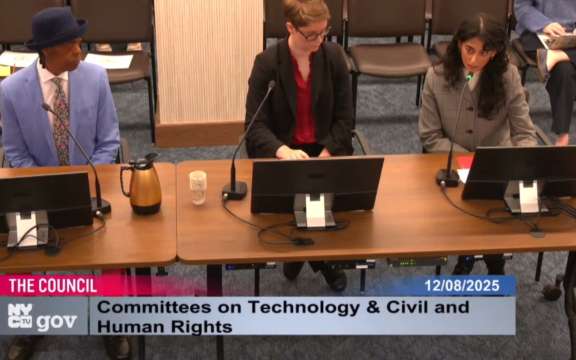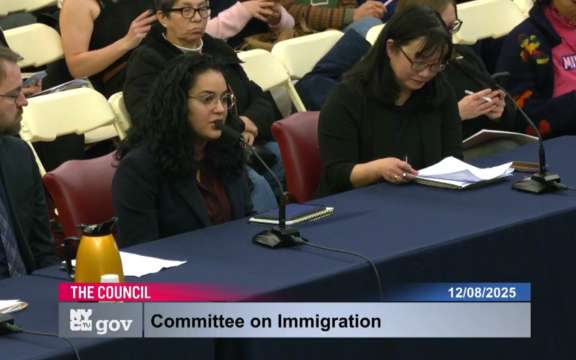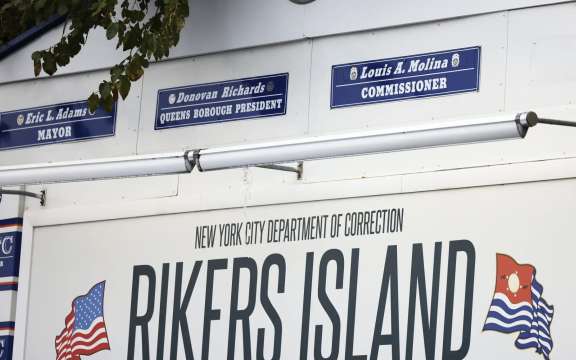Op-ed: Keeping families together is best - June is National Family Preservation Month
Lauren Shapiro, Managing Director of Brooklyn Defenders' Family Defense Practice, joined the heads of New York's family defense providers to pen an op-ed published in the New York Daily News.
"In recent weeks, media coverage of the tragic deaths of children in New York City, including a NY1 series titled “In the Dark: New York’s Child Welfare Deaths,” have brought painful images of hurt children into the public sphere. In past years, coverage of similar heartbreaking losses led to a skyrocketing of child welfare investigations and families being torn apart. We can’t let that happen again.
As public defenders, we know that the calls for accountability following sensationalist media coverage of child fatalities have the paradoxical effect of creating “foster care panics” when hotline calls jump and agencies make decisions to separate families based on political expediency. Wrongful investigations and removals traumatize children, and disproportionately impact low-income children of color. These investigations and removals do not in fact reduce fatalities, according to city and state data, and instead exact harm and trauma on families, most specifically in Black and Latino communities.
Data show that child maltreatment fatalities remain rare in New York City and have not changed in frequency in the past decade. Far more frequent is the targeting, surveilling, and policing of family relationships in Black and Latino communities.
In 2019, for example, there was one Administration for Children’s Services investigation for every five families in Brownsville. In Hunts Point, it was one in seven. For Black children specifically, more than a quarter of New York City’s zip codes have investigation rates of one in 10 children or higher. Intrusive and scary investigations cause lasting emotional anguish to families, and the oversaturation of investigations can make it even more difficult for ACS to respond appropriately to families in serious crisis.
It’s not enough to pay attention to what’s happening to Black and Latino children who are impacted by the system only when a child dies. Doing so ignores the many lifelong negative impacts the family policing system (mistakenly known as the “child welfare” system) has on these children, and encourages that systemic harm to continue.
Across the country, Black and Latino children “face discrimination and unequal outcomes at every stage” of the family policing system, as Children’s Rights has documented. These children are moved around with more frequency, receive fewer resources, and are significantly less likely than white children to ever reunite with their families. And when Black youth age out of the system, nearly a quarter experience homelessness and almost 30% are incarcerated.
What families need to keep children safe is access to resources and community-based and family support, as well as legal protections. That’s why we support policies that protect families from false and malicious anonymous reports, help them understand the rights they already have when ACS knocks, and ensure hospitals respect the bodily autonomy of newborn parents. A number of state and city bills will mitigate the harms of persistent injustices, including the Family Miranda Rights Act, the Anti-Harassment in Reporting bill, the Informed Consent Act, and the Preserving Family Bonds bill.
During the pandemic, New York City saw the immediate impacts of direct economic investment in family life. Even as the shutdown inflicted incredible stress, it led to unusual generosity and innovation in moving resources to families in need. Evictions were put on hold. Food stamp regulations were changed so that children’s lunches became available through EBT cards and families were able to use SNAP for prepared foods. Major economic relief came through unemployment benefits, the federal stimulus, the child tax credit and the excluded workers fund. Foundations and nonprofits gave millions in direct cash assistance with few strings attached.
During this time, all forms of child welfare intervention dropped precipitously, yet there is no indication that New York City children were less safe, proving that typical responses such as calling for greater mandated reporting or government intervention are not the right solutions for an already racially biased and dangerous system.
Every child’s death is a tragedy and we must work together as a society to address the root causes. We must also avoid falling into the misguided trap of sensationalizing these tragedies and increasing family policing policies in response, which only lead to greater family separation and family instability. In June, families across the country are honoring National Family Preservation Month, recognizing the importance of the work being done to keep families together. To keep the city’s children safe, we must support — not tear apart — their families and communities."
Akbar is managing attorney of the Family Defense Practice at the Neighborhood Defender Service of Harlem. Coles is executive director of the Center for Family Representation. Ketteringham is managing attorney of the Family Defense Practice at The Bronx Defenders; Lauren Shapiro is managing attorney of the Family Defense Practice at Brooklyn Defenders.


